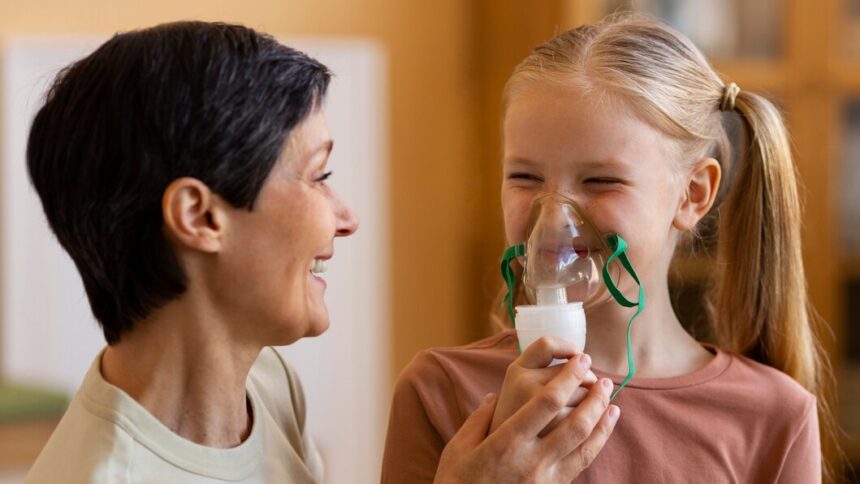Asthma is a chronic respiratory condition characterized by inflammation and narrowing of the airways, leading to difficulty breathing, wheezing, coughing, and chest tightness. While asthma can develop at any age, it often begins in childhood, with symptoms ranging from mild to severe. Early detection and management of asthma are crucial for preventing complications and improving quality of life. In this article, we’ll explore the early signs and symptoms of asthma in children, empowering parents and caregivers to recognize the condition and seek appropriate medical attention.
1. Frequent Coughing:
Persistent or recurrent coughing, particularly at night or during physical activity, may be an early sign of asthma in children. The cough may be dry or accompanied by phlegm and can worsen with exposure to triggers such as allergens or respiratory infections.
2. Wheezing:
Wheezing is a characteristic sound that occurs when air flows through narrowed or inflamed airways. In children with asthma, wheezing may be heard during exhalation and can vary in intensity from mild to severe. Wheezing may occur episodically or persistently, especially during asthma flare-ups.
3. Shortness of Breath:
Children with asthma may experience shortness of breath or difficulty breathing, particularly during physical exertion or exposure to triggers such as allergens or irritants. Shortness of breath may be accompanied by rapid breathing and chest tightness.
4. Chest Tightness:
Chest tightness or discomfort is a common symptom of asthma in children and may feel like a squeezing or pressure sensation in the chest. Children may describe feeling as though something is sitting on their chest or having difficulty taking deep breaths.
5. Rapid Breathing:
Rapid or shallow breathing may occur during asthma attacks or exacerbations, as the body tries to compensate for restricted airflow in the lungs. Rapid breathing may be accompanied by increased heart rate and feelings of anxiety or panic.
6. Fatigue or Irritability:
Children with poorly controlled asthma may experience fatigue or irritability due to inadequate oxygenation and disrupted sleep patterns. Persistent coughing, wheezing, and breathing difficulties can also interfere with daily activities and affect mood and behavior.
7. Decreased Physical Activity:
Children with asthma may avoid physical activity or exercise due to fear of triggering asthma symptoms. Decreased physical activity can contribute to deconditioning and may exacerbate asthma symptoms over time.
8. Trouble Sleeping:
Asthma symptoms, such as coughing, wheezing, and shortness of breath, often worsen at night and can disrupt sleep patterns. Children with asthma may experience difficulty falling asleep, frequent awakenings, or daytime sleepiness due to poor sleep quality.
9. Allergic Symptoms:
Allergic symptoms, such as sneezing, runny nose, itchy eyes, and nasal congestion, are common in children with asthma, especially those with allergic asthma triggered by allergens such as pollen, dust mites, or pet dander.
10. Recurrent Respiratory Infections:
Children with asthma may be more susceptible to respiratory infections, such as colds, flu, or bronchitis, which can exacerbate asthma symptoms and lead to asthma flare-ups. Recurrent respiratory infections may be a sign of underlying asthma.
Recognizing the early signs and symptoms of asthma in children is essential for timely diagnosis and management of the condition. Parents and caregivers should be vigilant for symptoms such as frequent coughing, wheezing, shortness of breath, chest tightness, and allergic symptoms. If you suspect that your child may have asthma, it’s important to consult a healthcare professional for proper evaluation and treatment. With appropriate management, including medication, asthma action plans, and trigger avoidance, children with asthma can lead active and fulfilling lives while effectively managing their condition.










